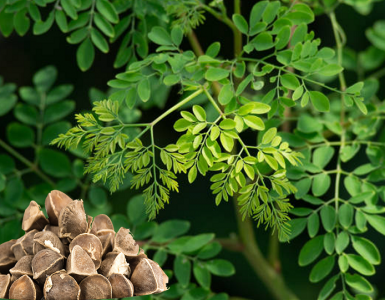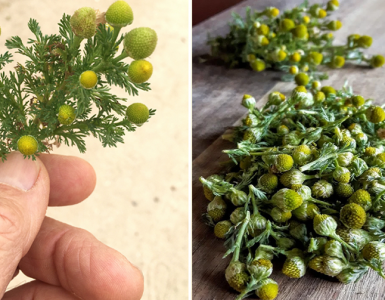Wood ash, often seen as waste after a cozy fire, can actually be a valuable resource for your garden. Rich in essential nutrients, wood ash can improve soil health, act as a pest deterrent, and even balance pH levels. If you’re looking for a sustainable way to enhance your home garden, wood ash may be the perfect solution.
In this article, we’ll explore the many benefits of using wood ash in the garden and how to apply it effectively for the best results.
1.Provides Essential Nutrients for Plants
Wood ash is an excellent source of several nutrients that are essential for plant growth. The exact composition of the ash can vary depending on the type of wood burned, but it generally contains:
Potassium (K): Potassium is a crucial nutrient that helps plants with water uptake, photosynthesis, and overall growth. Wood ash can be a good source of potassium, especially for fruiting plants.
Calcium (Ca): Wood ash is high in calcium, which helps to neutralize acidic soils and improve soil structure. It promotes root growth and strengthens plant cell walls.
Magnesium (Mg): Magnesium is another important element that supports chlorophyll production and enhances plant photosynthesis.
How It Helps:
Improves fruit and vegetable production: Potassium-rich wood ash can boost the development of fruits and flowers.
Enhances plant growth: Calcium and magnesium help plants develop strong roots and healthy green leaves.
2.Raises Soil pH and Reduces Acidity
Wood ash is highly alkaline, making it a great natural amendment for acidic soils. If your garden soil is too acidic (with a pH below 6), adding wood ash can help raise the pH to a more neutral level, which is ideal for many vegetables, fruits, and flowers.
How It Helps:
Improves soil balance: Raising the soil pH encourages better nutrient uptake by plants, particularly in acidic soils.
Prevents nutrient deficiencies: Many essential nutrients, such as nitrogen, phosphorus, and potassium, are less available in highly acidic soils. Adjusting the pH with wood ash ensures plants can access these nutrients.
How to Use It:
Test the soil pH: Before applying wood ash, test your garden soil to determine its pH. Wood ash is most effective on soils with a pH below 6.
Apply sparingly: Spread a thin layer of ash over your garden soil, and mix it in thoroughly to avoid over-alkalizing the soil. A general rule is to use no more than 5 pounds of wood ash per 100 square feet of garden space per year.
3.Natural Pest Control
Wood ash can be used as a natural pest deterrent in the garden. Its fine texture can irritate the skin of soft-bodied pests such as slugs, snails, and certain types of beetles. When applied to the soil, wood ash can create a barrier that discourages these pests from attacking your plants.
How It Helps:
Repels slugs and snails: A sprinkling of wood ash around the base of plants can deter slugs and snails from climbing up and feasting on your garden crops.
Deters soft-bodied insects: Wood ash can also help reduce infestations of pests like aphids and beetles, though it should be used in moderation to avoid harming beneficial insects.
How to Use It:
Sprinkle ash around plants: Apply a thin layer of ash around the base of vulnerable plants to create a barrier.
Reapply after rain: Since wood ash is water-soluble, it may need to be reapplied after rain or watering.
4.Boosts Compost Pile Health
Adding wood ash to your compost pile can help improve its quality and speed up the decomposition process. Wood ash adds valuable nutrients like potassium and calcium to the compost, balancing the nitrogen-rich “green” materials with alkaline ash.
How It Helps:
Balances compost acidity: If your compost pile is too acidic (often caused by adding too many fruit scraps or green materials), wood ash can help neutralize the acidity, creating a more balanced mix.
Enhances nutrient content: The addition of wood ash enriches the compost with essential minerals, creating nutrient-dense compost for your garden.
How to Use It:
Mix into compost: Add wood ash in small quantities to your compost pile, making sure to mix it well with other materials. A light sprinkling every few layers is sufficient.
Avoid excess: Too much wood ash can make the compost overly alkaline, so use it sparingly.
5.Improves Lawn Health
Wood ash can also be used to improve the health of your lawn, especially if your soil is acidic. By raising the soil’s pH and adding nutrients like calcium and potassium, wood ash can promote healthy grass growth and help control moss, which tends to thrive in acidic soil.
How It Helps:
Encourages lush growth: Potassium in wood ash promotes strong, healthy grass growth, while calcium helps with root development.
Controls moss: Moss prefers acidic soil, so using wood ash to raise the pH can help reduce moss growth in your lawn.
How to Use It:
Apply to acidic lawns: Use a lawn spreader to apply wood ash lightly over your lawn in early spring or fall, when grass is actively growing.
Avoid overuse: As with garden soil, too much wood ash can make the soil too alkaline, so it’s important to test your soil’s pH before applying it to your lawn.
6.Sustainable and Free Resource
One of the best things about wood ash is that it’s a free and sustainable resource, especially if you regularly burn wood for heating or cooking. Instead of disposing of wood ash as waste, you can repurpose it to enrich your garden naturally.
How It Helps:
Cost-effective gardening: Using wood ash reduces the need for commercial fertilizers and lime products, saving you money on gardening supplies.
Eco-friendly: Wood ash is a natural byproduct of burning wood, making it an environmentally friendly alternative to synthetic garden additives.
Precautions When Using Wood Ash
While wood ash offers numerous benefits for the garden, it’s important to use it carefully:
Avoid applying to alkaline soil: If your soil is already alkaline (with a pH above 7), adding wood ash can make the soil too basic, which can hinder plant growth.
Use in moderation: Overusing wood ash can lead to nutrient imbalances and reduce the availability of certain nutrients like phosphorus.
Avoid applying to acid-loving plants: Plants like blueberries, azaleas, and rhododendrons prefer acidic soil and may not thrive if wood ash is applied.
Using wood ash in your home garden is an effective and sustainable way to enrich your soil, balance pH levels, and naturally control pests. Packed with essential nutrients like potassium, calcium, and magnesium, wood ash can help improve the health and productivity of your plants when used properly. Whether you’re using it to boost compost, improve lawn health, or naturally deter pests, wood ash is a valuable resource that can enhance your gardening efforts without costing you a penny.




















Add comment